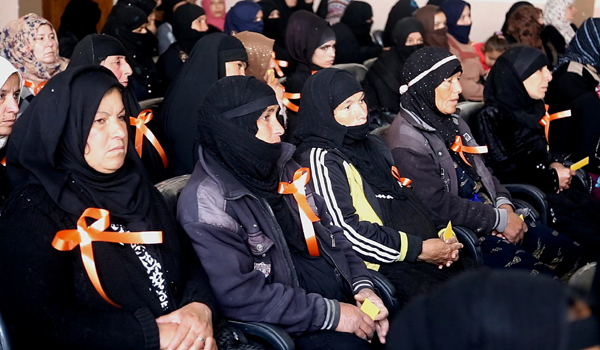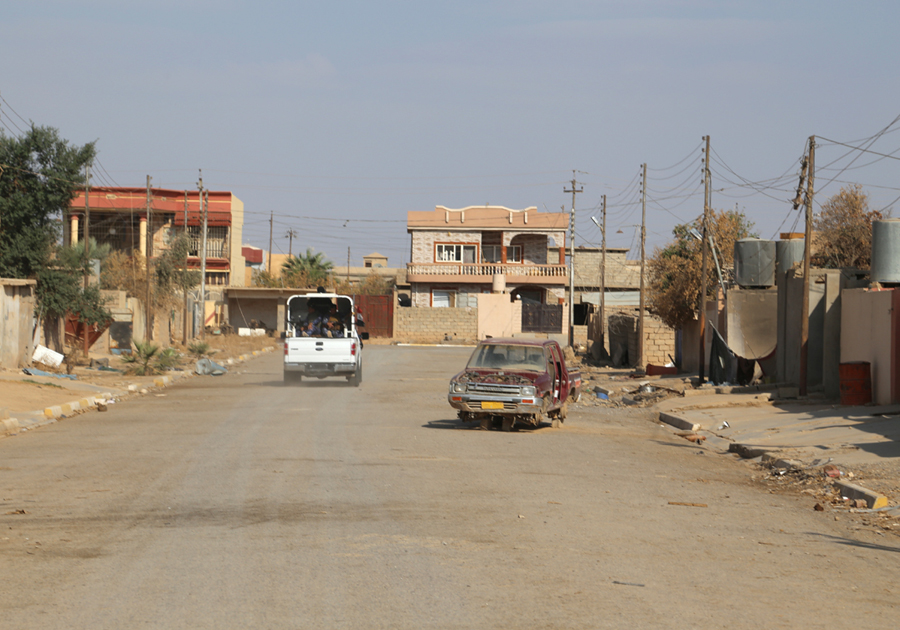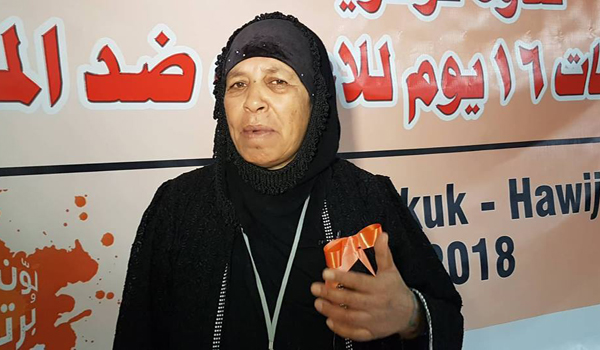Najiba Muhammad, who became a voice for women and defender of their rights after the ISIS war, was buried quietly and without ceremony due to the pandemic.
From an early age, Najiba had become a farmer to help her father.
Sroud Ahmad, director of Kirkuk branch of Iraqi Hope Group for human rights, told KirkukNow: “Najiba died in September due to a chronic disease without many knowing about it. Unfortunately, we were not about to hold a ceremony for her.”
“Najiba was a tireless woman. To provide for her sisters, mother, father, and her two children, she was spending her days with hard work. And on top of that she was advocating for the rights of girls and women of Hawija.”
Najiba was the director of the Hawija branch of Iraqi Hope Group for some time, but couldn’t continue due to health complications.

Najiba was known as um-Muhamad (Muhanad’s mother) in the Tal Aliya village in Hawija district of Kirkuk. She died at the age of 58.
In 2019, Najiba spoke to KirkukNow, and said: “I’ve been a farmer since my childhood; I was helping my father, that’s why I couldn’t finish school and quit after finishing primary school.”
Najiba had married in the early 1980’s and has two sons: Muhanad and Aws. Her husband was killed in the Iran-Iraq war in 1986.
To provide for me and my two sons, my father was helping me. After some years, I bought a car to use for my work
“From then on, the burden on my shoulder became heavier. To provide for me and my two sons, my father was helping me. After some years, I bought a car to use for my work,” Najiba told KirkukNow in 2019.
Najiba has four younger sisters. Before dying, she lived with her parents, two of her sisters and her sons. Her work was the only source of income of the family.

When ISIS militants took over Hawija, Najiba was trying to prevent them trampling on the rights of women. That has led to the militants invading her home and confiscating her car. She then was forced to leave her village.
“She was very active; she was always busy with work related to women, and was taking part in many radio programmes to inform women on their rights and to advise them to rely on themselves,” Sroud Ahmad said.
The end of ISIS ushered a new life for Najiba. As soon as she went back to Hawija with her family, she bought a pick-up vehicle and resumed farming.
Najiba was contemplating setting up a shelter for women who are victims of violence.
She died at a time when there was a travel ban in place between cities due to the pandemic.
“She was a warrior for women’s rights in her home region,” Sroud Ahmad added.





